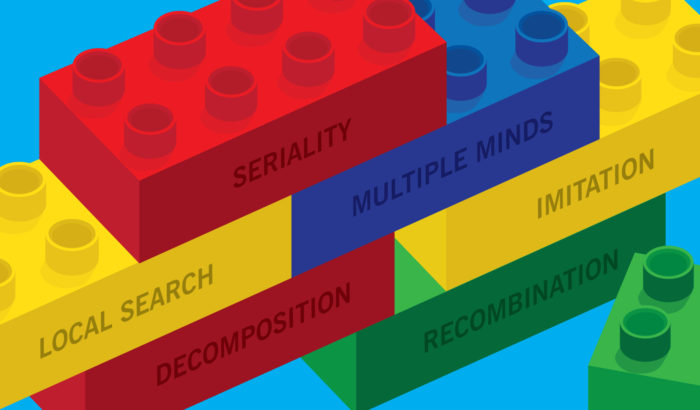We tend to have a lot of discussions about diversity in a business context, although probably less about cognitive diversity. That will be the subject of this post. But let’s briefly mention the overall idea of diversity before we get rolling. It’s clearly pretty important to have diverse workplaces — McKinsey, among other places, has proved that — but it feels like a lot of lip service from the mouths of executives. Despite how much we discuss diversity, there are still more CEOs in North America named “John” than female CEOs in total. And don’t even get me going on pay transparency: we’re a long way off on that front.
So. The broader point here is that we tend to discuss diversity a lot, but we don’t necessarily act on anything to do with diversity. I think it’s likely the same set of issues for cognitive diversity, but let’s explore a little bit.
What is cognitive diversity, really?
You can likely figure it out from the title. “Cognitive” usually references “thinking” for most people, and diversity usually references “differences among those in a room.” So, cognitive diversity would be teams/organizations with a lot of different viewpoints and ways of thinking — not necessarily different genders or races. Everyone could be white (not great) but if the ideas being presented were different, that would be cognitive diversity.
[Tweet “Less cognitive diversity = greater threat of disruption?”]
This has all been proven by research to be very important for team development. Organizations, as they get larger, are often prone to group-think. People want to impress the key stakeholders to rise up themselves. As a result, they often ape/mimic whatever the key stakeholders are saying. This creates something called homophily, or every executive and lieutenant thinking the exact same way. Ultimately, these kinds of companies tend to under-perform their market and/or get disrupted. What happens in a group-think company when something new/big arrives, like mobile or digital? One person says “Pfft, that’s a fad” and everyone else agrees. There’s no cognitive diversity. If you’ve read some of the post-mortem content on the Hillary Clinton campaign, seems like this is a reason she might have lost.
Related to all this: both personally and professionally, spend less time with people like yourself.
Any deify-the-idea-of-cognitive diversity quotes out there?
You know it. Here’s one from a VP of Engineering at Facebook. She runs a secretive lab!
“The ultimate goal is cognitive diversity, and cognitive diversity is correlated with identity diversity. That means it’s not just about [getting] women in tech. It’s about broad voices, broad representation. But we can’t step away from the idea that in the workplace, diversity also looks like identity diversity. You have to get to the place where you aren’t made comfortable by the fact that everyone is the same, but rather feel inspired by how different we are. We get better problem-solving that way.”
This quote is also backed up by some research on the U.S. civil rights movement.
Can we hire for cognitive diversity, though?
Of course we can — although right now, we have a few problems around hiring. There’s obviously a lot of subjectivity (and confirmation bias) in how we hire. A lot of hiring managers sadly don’t want the best person — they want the person who’s most like-minded to them. This creates, then underscores, a lack of cognitive diversity in organizations. If Tommy Team Leader only wants to hire “chip off the old Tommys,” well, that team will eventually have no cognitive diversity. Outside perspectives essentially cease to exist. In a supposedly fast-moving, ever-so-dynamic business environment, I fail to see how this is ultimately an advantage. Seems like more ideas and viewpoints and discussion and context would be better, but perhaps I am naive.
That’s what frustrates me about hiring in general, though: it’s such a cover your ass play between the hiring manager and HR that we’ve essentially created recruiting processes that ultimately alienate the best candidates. Cognitive diversity is dying in that flood.
How much thinking really goes on in organizations, though?
That’s the final piece of this puzzle. Most guys who rise up in companies rise up because they’re good at execution. In essence, they are target-hitters. Someone gave them a goal (a target) and they went and got it. Eat what you kill. If you do that for 15 years and become an executive, well, the thinking muscles in your brain are not what they once were. You are an execution/operations guy. That’s what got you to this perch. Thinking is essentially dead. This is why most “strategic plans” could probably be written on toilet paper and have the same effect.
So there’s a case to be made here. Maybe we don’t need cognitive diversity. Maybe what we really need is just a good little stable of target-executors who can we eventually (decades later) promote. If critical thinking barely matters to an execution-driven org (“Gotta scale like a startup!”), then maybe cognitive diversity is actually overrated. I don’t think so, personally, but perhaps you do.
Thoughts on cognitive diversity?
